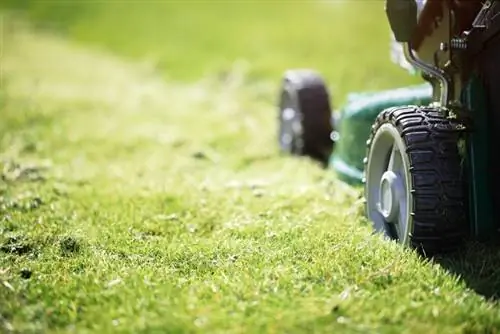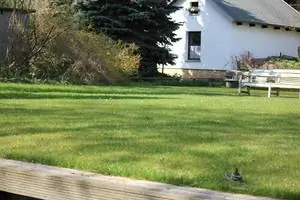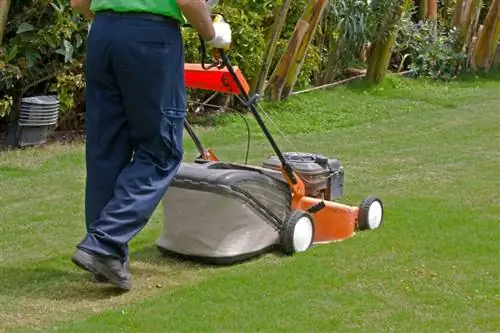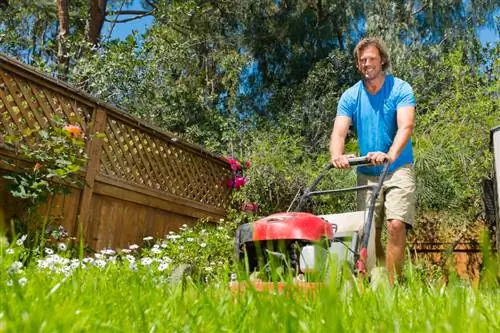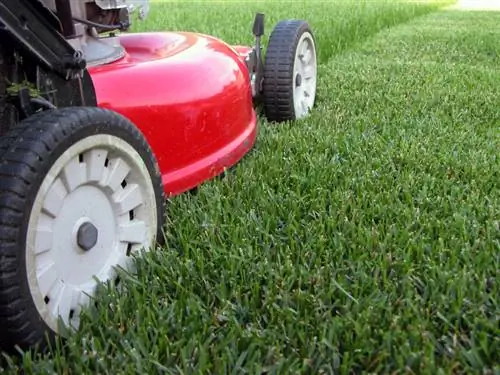- Author admin [email protected].
- Public 2023-12-16 16:46.
- Last modified 2025-06-01 06:02.
The pros and cons of so-called mulch mowing have been debated very controversially by lawn professionals and hobby gardeners for many decades. This type of mowing differs from traditional lawn cutting only in that our clippings end up on the green meadow not in the grass catcher as usual, but chopped up extra finely. Motivation of hobby gardeners for this type of “waste” disposal:
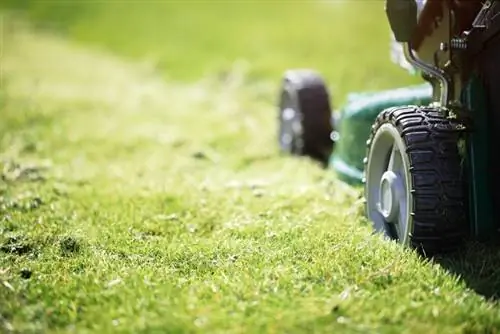
Mulching or mowing the lawn - which is better?
Mulching offers advantages over traditional lawn mowing, such as moisture retention in the soil, natural fertilization, better activity of soil organisms and takes less time. Lawn thatch formation, a typical argument against mulching, has been refuted in studies.
- The moisture remains in the soil.
- The lawn is naturally freshly fertilized again.
So mulching makes the lawn fit?
Not true, some say. Thatch forms, which would make the entire area unsightly in a very short time. So a team of researchers had to set out to meticulously observe and scientifically examine a 2,000 m2 area of grassland over a period of three years. Experiment leader Prof. Dr. Karl-Ernst Schönthaler and his men from the Institute for Landscape Development at the University of Natural Resources and Life Sciences in Vienna divided the area and half each with traditional orMulching lawnmowers maintained.
Where does the thatch come from?
First of all, the most important finding from this long-term test: The formation of the dreaded thatch could not be confirmed during mulching. The opposite was the case, because on the area mowed with a grass catcher, a considerable shift in the types of grass (decrease in meadow panicle and increase in red fescue) was observed, which in turn particularly favors the formation of thatch! It was not only possible to scientifically and convincingly refute the long-held prejudice against mulching lawn mowers, but also to identify some previously unimagined advantages, such as the following facts:
Mulched lawn is fresher, more vital and takes less time
- Saving of 30 to 40 euros/100 m2 in fertilizer costs;
- More mowing passes than required for grass catcher mowing (21 instead of 17), but overall a time saving of 20 percent when mulching;
- 40 percent higher activity of soil organisms and better decomposition of the mowed material by microorganisms;
- Unproblematic disposal of clippings
Our tip for mulching
- The mulching mower (€299.00 at Amazon) should always be used in such a way that a maximum of a third of the grass blades has to be cut off. Otherwise, several mowing passes are required to achieve a lawn height of 30 to 40 millimeters across the entire area.
- When mulching, always make sure that the lawn is as dry as possible, otherwise it tends to form clumps and is not evenly distributed over the turf.

